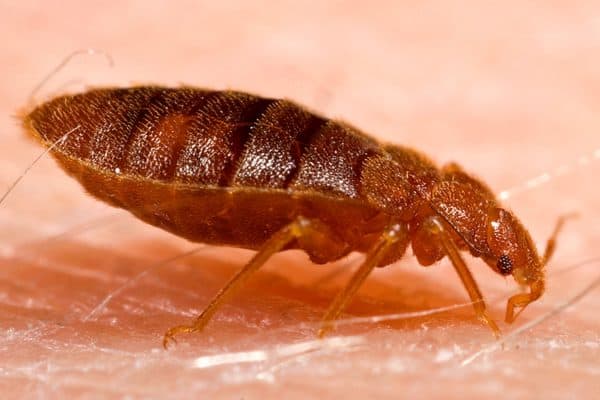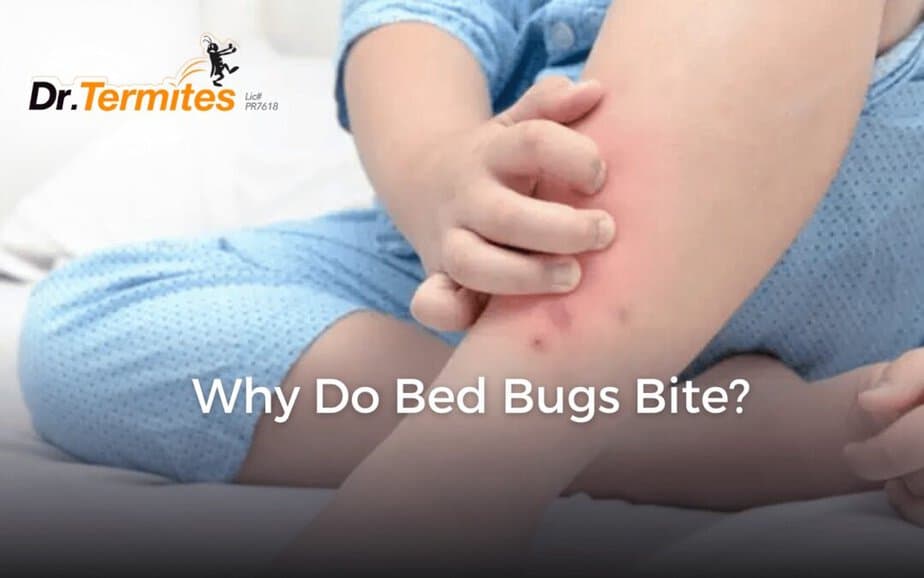Bed bugs are small insects that often cause frustration for people dealing with them. They feed on human blood, which is the main reason they bite. These pests can be problematic to notice initially, but their bites can lead to discomfort. This blog post will explain why bed bugs bite, their habits, and how to prevent them.

What Are Bed Bugs?
Bed bugs are tiny, flat insects that survive by feeding on the blood of humans and animals. They are brownish and about the size of an apple seed. Bed bugs do not fly but can quickly crawl across floors, walls, and ceilings. These pests are often found in mattresses, box springs, and bed frames because they like to be close to their food source.
Why Do Bed Bugs Feed on Blood?
Blood is the primary food source for bed bugs. They bite because they need blood to survive and reproduce. Female bed bugs require blood meals to lay eggs. Bed bugs cannot live long without feeding, so they actively seek out sleeping humans to feed on.
When Do Bed Bugs Bite?
Bed bugs are nocturnal, meaning they are most active at night. They usually bite while people are sleeping because this is when they can feed without being noticed. The insects are drawn to body heat and carbon dioxide, which humans exhale while breathing. Once they find a host, they use their mouthparts to pierce the skin and draw blood.
What Happens During a Bite?
When a bed bug bites, it injects saliva into the skin. This saliva contains an anesthetic that prevents the person from feeling the bite immediately. It also has an anticoagulant to keep the blood flowing. After feeding for a few minutes, the bed bug retreats to its hiding place.
Where Do Bed Bugs Hide?
Bed bugs are excellent at hiding, which makes them difficult to detect. They prefer cracks and crevices near where people sleep. Common hiding spots include mattress seams, headboards, and furniture. Learning how to spot bed bugs early can prevent a full-blown infestation. Look for dark spots, eggs, or the bugs themselves in their favorite hiding areas.
Signs of Bed Bug Bites
Bed bug bites often appear as small, red, and itchy bumps. They are usually found in clusters or straight lines on the arms, legs, neck, and back. Some people may not react to the bites, while others might experience significant irritation.
How to Prevent Bed Bug Bites
Preventing bed bug bites starts with keeping them out of your home. Contact bed bug control experts to assess the situation if you suspect an infestation. Here are some steps to prevent bed bugs:
Inspect Second-Hand Furniture
Used furniture can sometimes bring bed bugs into your home. Before bringing in any second-hand items, carefully check them for signs of bed bugs. Look at seams, cracks, and joints for evidence of these pests.
Wash Bedding and Clothes Regularly
Frequent washing and drying of bedding and clothes at high temperatures can kill bed bugs. Use the hottest settings on your washer and dryer to ensure any bugs or eggs are eliminated.
Seal Cracks and Crevices
Bed bugs love to hide in small spaces. Seal any cracks or gaps in walls, furniture, or floors to reduce their hiding spots. Vacuum your home regularly, paying special attention to bedrooms and sleeping areas.
When to Call for Professional Help
If prevention methods do not work and the infestation worsens, it is time to contact a professional bed bug control service. Professionals use effective treatments to eliminate bed bugs and prevent them from returning.
Why Are Bed Bugs So Persistent?
Bed bugs are hard to get rid of because they reproduce quickly and can go months without feeding. They are also resistant to many common insecticides. Their small size allows them to hide in places that are hard to reach. This persistence makes dealing with an infestation especially challenging.
How to Protect Yourself While Traveling
Traveling can expose you to bed bugs, especially in hotels or shared accommodations. To protect yourself:
- Inspect the mattress, bed frame, and headboard for signs of bed bugs.
- Keep your luggage off the floor and bed.
- Use luggage liners or seal your bags in plastic during your stay.
- Wash and dry your clothes immediately upon returning home.
Understanding Why Bed Bugs Bite and How to Address Them Effectively
Bed bugs bite because they need blood to survive and reproduce. These pests are most active at night, making them difficult to notice. Preventing bites involves regular cleaning, inspecting furniture, and sealing cracks in your home. If the problem persists, seek help from bed bug control experts. Early action and proper precautions can protect you from the discomfort caused by these pests.
Take control of your home with Dr. Termites! Our expert team provides safe, reliable solutions to eliminate bed bugs and pests permanently. Don’t let them disrupt your peace—call Dr. Termites today and reclaim your comfort!































